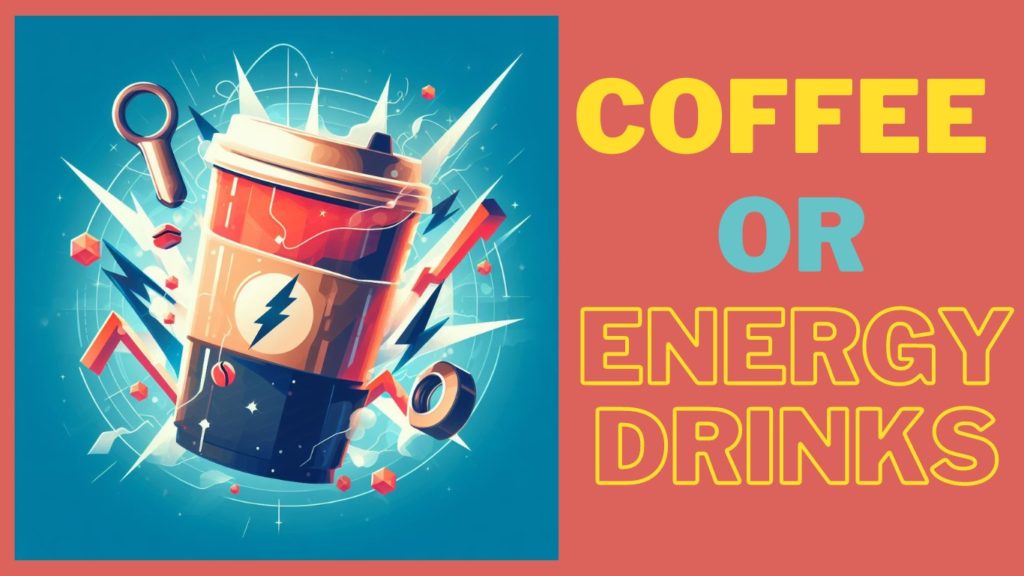| Factor | Coffee | Energy Drinks |
|---|---|---|
| Caffeine Content | Varies depending on the type, brand, and serving size of coffee, but generally higher than energy drinks per ounce | Varies depending on the brand and serving size of energy drink, but generally lower than coffee per ounce |
| Sugar Levels | No sugar unless added, but some coffee drinks can have a lot of added sugar, syrups, and whipped cream | A lot of sugar and artificial sweeteners, which can cause weight gain, diabetes, tooth decay, and inflammation |
| Caloric Value | Almost no calories unless added, but some coffee drinks can have a lot of calories from milk, cream, sugar, and other ingredients | A lot of calories, mostly from sugar and artificial sweeteners, which can cause weight gain and obesity |
| Natural Ingredients | Contains beneficial nutrients and antioxidants, such as chlorogenic acids, polyphenols, and trigonelline, which can lower the risk of various chronic diseases, improve the mood, memory, and mental performance, and prevent or delay the onset of age-related cognitive decline | Contains few or no natural ingredients, and mostly relies on artificial ingredients and additives, such as sugar, artificial sweeteners, artificial flavors, artificial colors, preservatives, and stabilizers, which can have negative effects on the health and the environment |
| Fitness Benefits | Can increase the metabolism, improve the physical endurance, reduce the perceived exertion, and enhance the muscle function, which can help achieve the fitness goals, such as losing weight, building muscle, or improving the athletic skills | Can provide a quick burst of energy, hydrate the body, and replenish the electrolytes, but these effects are short-lived and often followed by a crash, which can impair the fitness performance and the health |
| Health Implications | Can reduce the risk of various chronic diseases, improve the mood, memory, and mental performance, and prevent or delay the onset of age-related cognitive decline, but can also cause or worsen insomnia, anxiety, irritability, or jitteriness, depending on the individual response and tolerance to caffeine | Can cause dehydration, insomnia, anxiety, headaches, palpitations, tooth decay, high blood pressure, kidney failure, and addiction, by overstimulating the central nervous system and the cardiovascular system, as well as by causing a rebound effect |
This post on coffee or energy drinks is one I did not want to write, and I think I knew the answer before I started to write. However, how often do we not see, especially young ones, sipping to an energy drink and eating chips… But should we? And is coffee a better option? Let’s see!
Coffee and energy drinks are two popular beverages that people consume to boost their energy levels and stay alert. But how do they compare in terms of their ingredients, effects, and benefits? In this article, I will explore the science behind coffee or energy drinks and find out which one is better for you and why.
In this blog post we will look at the following:
Determining the Caffeine Content in Each Beverage
The main ingredient that gives both coffee and energy drinks their stimulating effect is caffeine. Caffeine is a natural substance that acts on the central nervous system and enhances alertness, mood, and cognitive performance. However, the amount of caffeine in each beverage can vary significantly depending on the type, brand, and serving size.
According to the Mayo Clinic, the average caffeine content in an 8-ounce cup of brewed coffee is 95 milligrams, while the average caffeine content in an 8.4-ounce can of Red Bull is 80 milligrams.
However, some coffee varieties and energy drink brands can have much higher or lower amounts of caffeine. For example, an 8-ounce cup of Starbucks Pike Place Roast coffee has 165 milligrams of caffeine, while an 8.4-ounce can of Monster Energy has 160 milligrams of caffeine.
How Much Caffeine is Too Much?
First of all, I am not a doctor or health expert. All I do is putting together one post on the matter of already existing content for easy access.
While moderate caffeine intake (up to 400 milligrams per day for healthy adults) can have positive effects on energy, mood, and cognition, excessive caffeine consumption can have negative consequences, such as insomnia, anxiety, irritability, headaches, heart palpitations, and stomach upset .
Moreover, caffeine can interact with certain medications and health conditions, so it is important to consult your doctor before increasing your caffeine intake. See more coffee facts here.
How to Measure Your Caffeine Intake
To measure your caffeine intake, you need to know the caffeine content of the beverages you consume and the serving size you drink. You can find the caffeine content of different coffee varieties and energy drink brands on their labels or websites, or you can use online tools such as Caffeine Informer to calculate your caffeine intake.
You can also use a measuring cup or a scale to measure the amount of liquid you drink, or you can use standard sizes such as 8 ounces for a cup of coffee or 8.4 ounces for a can of energy drink.
However, keep in mind that these sizes may not reflect the actual amount of caffeine you consume, as some coffee shops and energy drink manufacturers may use larger or smaller servings.
Therefore, it is advisable to check the label or the website of the product you are drinking to get the accurate caffeine content per serving.
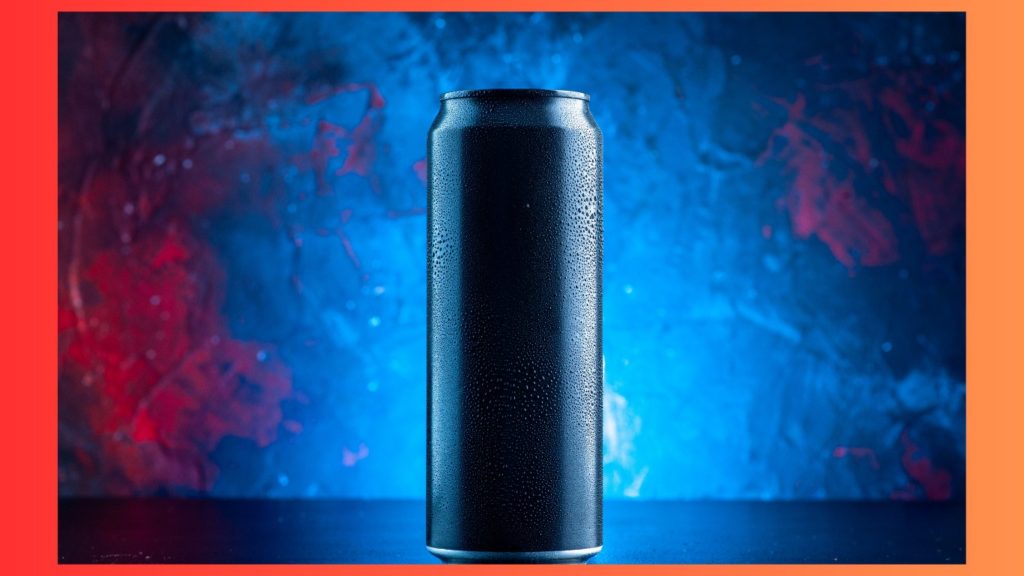
Analyzing the Sugar Levels in Both Drinks
Another factor that affects the energy and health effects of coffee and energy drinks is the amount of sugar they contain. Sugar is a simple carbohydrate that provides a quick source of energy for the body and brain. However, too much sugar can also have negative consequences, such as weight gain, diabetes, tooth decay, and inflammation.
Coffee by itself has no sugar, unless you add it yourself (!) I do not like to be served that. However, some coffee drinks, such as lattes, cappuccinos, mochas, and frappuccinos, can have a lot of added sugar, syrups, and whipped cream. For example, a 16-ounce Starbucks Caramel Frappuccino has 67 grams of sugar, which is equivalent to 16.75 teaspoons.
Energy drinks, on the other hand, usually have a lot of sugar and artificial sweeteners in their formulas. For example, a 16-ounce Monster Energy drink has 54 grams of sugar, which is equivalent to 13.5 teaspoons. Some energy drinks also contain sugar alcohols, such as erythritol, xylitol, and sorbitol, which can cause digestive problems, such as bloating, gas, and diarrhea.
How Much Sugar is Too Much?
According to the World Health Organization, the recommended daily intake of free sugars (added sugars and natural sugars in honey, syrups, and fruit juices) is no more than 10% of your total energy intake, which is equivalent to 50 grams or 12 teaspoons for an average adult.
However, for optimal health, they suggest reducing the intake of free sugars to less than 5% of your total energy intake, which is equivalent to 25 grams or 6 teaspoons for an average adult.
How to Reduce Your Sugar Intake
To reduce your sugar intake, you can follow these tips:
- Choose black coffee or coffee with low-fat milk and no added sugar, instead of sugary coffee drinks.
- If you need to sweeten your coffee, use natural sweeteners, such as honey, maple syrup, or stevia, in moderation, instead of refined sugar or artificial sweeteners.
- Avoid energy drinks or choose sugar-free or low-sugar versions, but be aware of the artificial sweeteners and other ingredients they contain.
- Drink water, unsweetened tea, or sparkling water with lemon or lime, instead of soda, juice, or sports drinks.
- Eat fresh fruits, nuts, seeds, or yogurt, instead of candy, cookies, or pastries, for a healthy snack.
- Read the nutrition labels and ingredients lists of the products you buy and look for the amount and type of sugar they contain.
Comparing the Caloric Value of the Beverages
Another factor that affects the energy and health effects of coffee and energy drinks is the amount of calories they contain. Calories are units of energy that measure how much fuel the body and brain need to function. However, consuming more calories than the body needs can lead to weight gain and obesity, which can increase the risk of various diseases, such as heart disease, diabetes, and cancer.
Coffee by itself has almost no calories unless you add milk, cream, sugar, or other ingredients. However, some coffee drinks, such as lattes, cappuccinos, mochas, and frappuccinos, can have a lot of calories, depending on the type and amount of milk, cream, sugar, and other ingredients used.
For example, a 16-ounce Starbucks Caramel Frappuccino has 420 calories, which is equivalent to 21% of the daily recommended calorie intake for an average adult.
Energy drinks, on the other hand, usually have a lot of calories, mostly from sugar and artificial sweeteners. For example, a 16-ounce Monster Energy drink has 210 calories, which is equivalent to 10.5% of the daily recommended calorie intake for an average adult. Some energy drinks also contain calories from other ingredients, such as taurine, guarana, ginseng, and vitamins.
How Many Calories Do You Need?
According to the [U.S. Department of Health and Human Services], the daily recommended calorie intake for an average adult is 2000 calories, but this can vary depending on age, sex, height, weight, and physical activity level.
To maintain a healthy weight, you need to balance the calories you consume with the calories you burn. You can use online tools such as a calorie calculator to estimate your calorie needs based on your personal factors.
How to Cut Down on Calories
To cut down on calories, you can follow these tips:
- Choose black coffee or coffee with low-fat milk and no added sugar, instead of high-calorie coffee drinks.
- If you need to add milk, cream, or sugar to your coffee, use small amounts and measure them with a spoon or a cup, instead of pouring them freely.
- Avoid energy drinks or choose sugar-free or low-calorie versions, but be aware of the artificial sweeteners and other ingredients they contain.
- Drink water, unsweetened tea, or sparkling water with lemon or lime, instead of soda, juice, or sports drinks.
- Eat a balanced diet that includes fruits, vegetables, whole grains, lean protein, and healthy fats, instead of processed foods, fast foods, or junk foods.
- Exercise regularly and stay physically active throughout the day, instead of sitting for long periods of time.
You might lso like my my How To Use Reishi Mushroom Powder For Health And Wellness post.
Assessing Cost-Effectiveness: Coffee vs. Energy Drinks
Another factor that affects the energy and health effects of coffee and energy drinks is the cost-effectiveness of each option. Cost-effectiveness is a measure of how much value or benefit you get from a product or service compared to how much money you spend on it. In other words, it is the ratio of quality to price.
Coffee is generally more cost-effective than energy drinks, for several reasons, such as:
- Coffee is cheaper than energy drinks, especially if you brew it at home or buy it from a regular coffee shop, instead of a specialty coffee shop. According to Statista, the average price of a cup of coffee in the U.S. in 2023 was $1.59, while the average price of a can of energy drink in the U.S. in 2023 was $2.21. I have a more in-depth article on Wholesale Coffee Beans Prices History here.
- Coffee is more customizable than energy drinks, as you can choose the type, roast, grind, and brew of your coffee beans, as well as the amount and type of milk, cream, sugar, and other ingredients you add to your coffee. This way, you can adjust your coffee to your taste and preference, as well as your caffeine and calorie needs. Energy drinks, on the other hand, have limited flavors and ingredients, and you cannot modify them according to your liking.
- Coffee is more sustainable than energy drinks, as you can reuse or recycle your coffee grounds, filters, cups, and mugs, as well as buy organic, fair trade, or shade grown coffee beans, which support environmental and social causes. Energy drinks, on the other hand, generate a lot of waste and pollution, as they come in aluminum cans or plastic bottles, which are often not recycled or disposed of properly, and contain artificial ingredients and additives, which may harm the environment and the people who produce them.
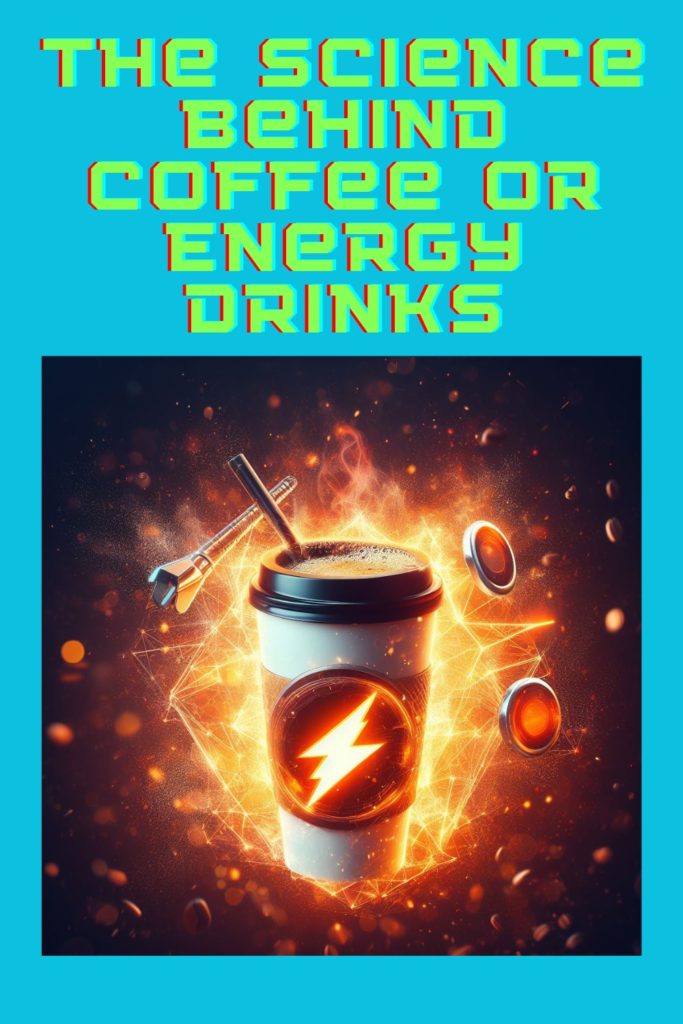
How to Save Money on Coffee or Energy Drinks
To save money on coffee or energy drinks, you can follow these tips:
- Brew your own coffee at home or at work, instead of buying it from a coffee shop or a vending machine. You can use a coffee maker, a French press, a pour-over, or a cold brew method, depending on your preference and convenience. You can also buy coffee beans in bulk and grind them yourself, or use reusable filters and pods, to reduce the cost and waste of your coffee.
- If you buy coffee from a coffee shop, choose a regular black coffee or a coffee with low-fat milk and no added sugar, instead of a fancy coffee drink, such as a latte, a cappuccino, a mocha, or a frappuccino, which are more expensive and have more calories. You can also bring your own reusable cup or mug, which may give you a discount or a free refill, as well as reduce the environmental impact of your coffee.
- Avoid energy drinks or choose sugar-free or low-calorie versions, but be aware of the artificial sweeteners and other ingredients they contain. You can also look for coupons, discounts, or sales on energy drinks, or buy them in bulk or in larger sizes, to save some money. However, keep in mind that energy drinks are not a healthy or sustainable option, and you should limit your consumption of them.
Examining the Natural Ingredients in Each Option
Another factor that affects the energy and health effects of coffee and energy drinks is the natural ingredients in each option. Natural ingredients are substances that are derived from plants, animals, or minerals and have not been chemically modified or synthesized.
Natural ingredients can have various benefits for the body and brain, such as providing nutrients, antioxidants, and phytochemicals, which can enhance health, wellness, and performance.
Coffee is a natural beverage that is made from roasted and ground coffee beans, which are the seeds of the coffee plant. Coffee beans contain several natural ingredients that have positive effects on the body and brain, such as:
- Caffeine: As mentioned earlier, caffeine is a natural stimulant that acts on the central nervous system and enhances alertness, mood, and cognitive performance. Caffeine can also increase metabolism, fat burning, and physical endurance.
- Chlorogenic acids: These are a group of antioxidants that are found in coffee beans, especially in green coffee beans, which are unroasted. Chlorogenic acids can lower blood pressure, blood sugar, and cholesterol levels, as well as prevent oxidative stress and inflammation.
- Polyphenols: These are another group of antioxidants that are found in coffee beans, especially in dark roasted coffee beans. Polyphenols can protect the cells from damage, modulate the immune system, and prevent chronic diseases, such as cancer, diabetes, and cardiovascular disease.
- Trigonelline: This is a natural compound that is found in coffee beans, especially in arabica coffee beans, which are the most common type of coffee beans. Trigonelline can improve dental health, as it prevents the growth of bacteria that cause tooth decay and bad breath. Trigonelline can also lower blood sugar and cholesterol levels, and prevent liver damage.
Energy drinks, on the other hand, usually have few or no natural ingredients and mostly rely on artificial ingredients and additives, such as sugar, artificial sweeteners, artificial flavors, artificial colors, preservatives, and stabilizers. However, some energy drinks may contain some natural ingredients, such as:
- Taurine: This is a natural amino acid that is found in animal tissues, such as meat, fish, and dairy products. Taurine can support the function of the heart, brain, eyes, and muscles, as well as regulate the fluid and electrolyte balance in the body. However, the taurine in energy drinks is usually synthetic, and its effects and safety are not well-studied.
- Guarana: This is a natural plant that is native to the Amazon rainforest. Guarana seeds contain caffeine and other stimulants, such as theobromine and theophylline, which can boost energy, mood, and mental focus. However, guarana can also cause side effects, such as insomnia, anxiety, palpitations, and tremors, especially when combined with other sources of caffeine.
- Ginseng: This is a natural root that is used in traditional Chinese medicine. Ginseng can improve physical and mental performance, as well as reduce stress, fatigue, and inflammation. However, ginseng can also interact with certain medications and health conditions, such as blood thinners, diabetes, and hormone-sensitive cancers, so it is important to consult your doctor before using it.
- Vitamins: These are natural substances that are essential for the normal function of the body and brain. Vitamins can support the immune system, the nervous system, the metabolism, and the production of energy. However, the vitamins in energy drinks are usually synthetic, and their absorption and effectiveness are questionable. Moreover, consuming too much of certain vitamins, such as vitamin A, vitamin D, vitamin E, and vitamin B6, can cause toxicity and adverse effects.
You might find some natural energy and boost in Coffee With Mushrooms too.
Evaluating the Fitness Benefits: Coffee vs. Energy Drinks
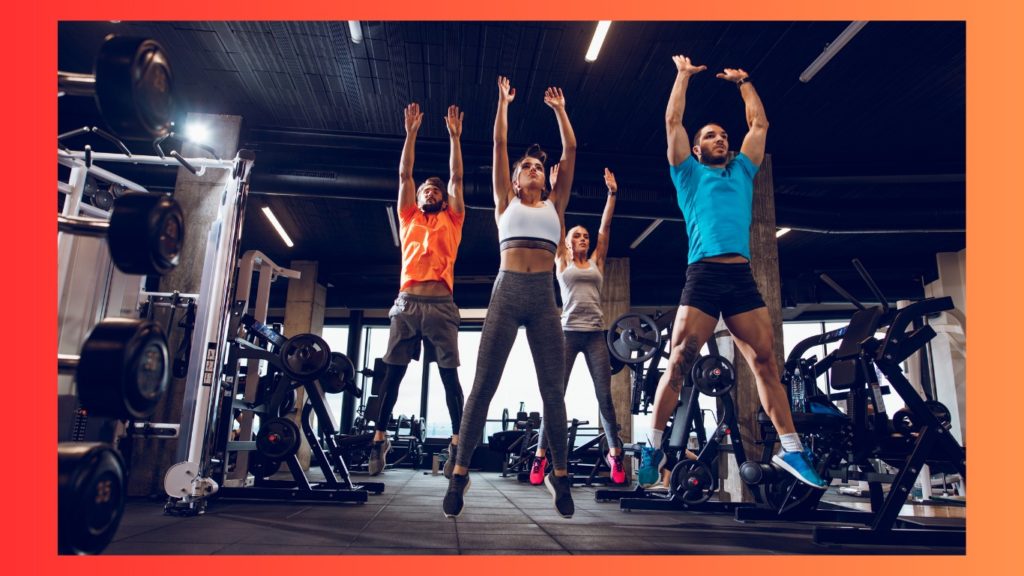
Another factor that affects the energy and health effects of coffee and energy drinks is the fitness benefits of each option. Fitness benefits are the advantages or improvements that a product or service can provide for your physical performance, such as strength, endurance, speed, agility, and coordination.
Fitness benefits can help you achieve your fitness goals, such as losing weight, building muscle, or improving your athletic skills.
Coffee is a natural beverage that can enhance your fitness performance, for several reasons, such as:
- Coffee can increase your metabolism, which is the rate at which your body burns calories and fat. This can help you lose weight, maintain a healthy weight, or prevent weight gain.
- Coffee can improve your physical endurance, which is the ability to sustain a high level of activity for a long period of time. This can help you exercise longer, harder, or faster, and improve your cardiovascular health and fitness.
- Coffee can reduce your perceived exertion, which is the level of difficulty or effort that you feel during a physical activity. This can help you overcome fatigue, pain, or boredom, and push yourself beyond your limits.
- Coffee can enhance your muscle function, which is the ability of your muscles to contract, relax, and generate force. This can help you increase your strength, power, speed, and agility, and prevent muscle damage and soreness.
Energy drinks, on the other hand, usually have little or no fitness benefits, and mostly rely on artificial ingredients and additives, such as sugar, artificial sweeteners, artificial flavors, artificial colors, preservatives, and stabilizers. However, some energy drinks may claim to have some fitness benefits, such as:
- Energy drinks can provide a quick burst of energy, which can help you start or finish a physical activity. However, this energy is short-lived and often followed by a crash, which can make you feel more tired, sluggish, or irritable than before.
- Energy drinks can hydrate you, which is important for your body and brain to function properly during a physical activity. However, water, unsweetened tea, or sports drinks are better options for hydration, as they do not contain sugar, artificial sweeteners, or other ingredients that can dehydrate you or cause other problems.
- Energy drinks can replenish your electrolytes, which are minerals that regulate the fluid and electrical balance in your body. However, most people do not need extra electrolytes, unless they sweat a lot or exercise in hot or humid conditions. Moreover, energy drinks may contain too much sodium, which can raise your blood pressure or cause water retention.
Gauging Health Implications: Coffee vs. Energy Drinks
Another factor that affects the energy and health effects of coffee and energy drinks is the health implications of each option. Health implications are the consequences or outcomes that a product or service can have for your health, wellness, and quality of life.
Health implications can be positive or negative, short-term or long-term, and mild or severe, depending on the type, amount, and frequency of consumption.
Coffee is a natural beverage that can have positive health implications, for several reasons, such as:
- Coffee can reduce the risk of various chronic diseases, such as type 2 diabetes, Alzheimer’s disease, Parkinson’s disease, and some cancers, by modulating the blood sugar, insulin, and inflammation levels, as well as protecting the brain and the DNA from damage.
- Coffee can improve the mood, memory, and mental performance, by stimulating the production and release of neurotransmitters, such as dopamine, serotonin, and acetylcholine, which regulate the emotions, learning, and cognition.
- Coffee can prevent or delay the onset of age-related cognitive decline, by enhancing the blood flow and oxygen delivery to the brain, as well as preventing the accumulation of amyloid-beta plaques, which are associated with Alzheimer’s disease.
However, coffee can also have negative health implications, for some people, such as:
- Coffee can cause or worsen insomnia, anxiety, irritability, or jitteriness, by overstimulating the central nervous system and interfering with the sleep cycle, especially if consumed in large amounts or close to bedtime.
- Coffee can increase or decrease the blood pressure, by constricting or dilating the blood vessels, depending on the individual response and tolerance to caffeine. This can affect the cardiovascular health and the risk of stroke or heart attack.
- Coffee can irritate the stomach, by increasing the acidity and the secretion of gastric juices, which can cause heartburn, indigestion, or ulcers, especially if consumed on an empty stomach or with other acidic foods.
Energy drinks, on the other hand, usually have negative health implications, for most people, such as:
- Energy drinks can cause dehydration, by increasing the urine output and the water loss, as well as by containing diuretics, such as caffeine and alcohol, which reduce the reabsorption of water in the kidneys. This can affect the hydration status and the electrolyte balance in the body .
- Energy drinks can cause insomnia, anxiety, headaches, or palpitations, by overstimulating the central nervous system and the cardiovascular system, as well as by causing a rebound effect, which is a sudden drop in energy and mood after the initial boost. This can affect the sleep quality and the mental health .
- Energy drinks can cause tooth decay, by eroding the enamel and the dentin, which are the protective layers of the teeth, as well as by promoting the growth of bacteria that produce acids and plaque, which damage the teeth. This can affect the oral health and the appearance of the teeth .
Coffee vs. Energy Drinks: 5 Reasons to Choose Coffee
After comparing the caffeine content, the sugar levels, the caloric value, the natural ingredients, and the fitness benefits of coffee and energy drinks, we can conclude that coffee is a better option than energy drinks for your energy, health, and wellness.
Here are five reasons I came up with on why you should choose coffee over energy drinks:
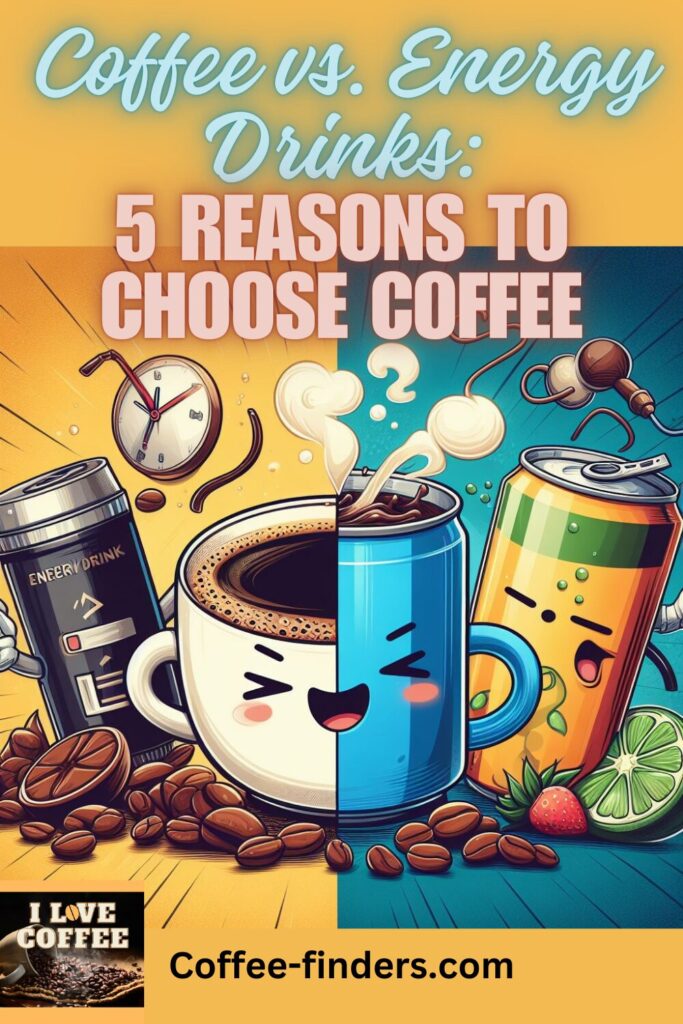
- Coffee is cheaper, more customizable, and more sustainable than energy drinks, which can save you money, satisfy your taste buds, and protect the environment.
- Coffee contains beneficial nutrients and antioxidants, such as chlorogenic acids, polyphenols, and trigonelline, which can lower the risk of various chronic diseases, improve the mood, memory, and mental performance, and prevent or delay the onset of age-related cognitive decline.
- Coffee can increase your metabolism, improve your physical endurance, reduce your perceived exertion, and enhance your muscle function, which can help you achieve your fitness goals, such as losing weight, building muscle, or improving your athletic skills.
- Coffee can be consumed in moderation without causing serious side effects, as long as you are not sensitive or allergic to caffeine, or have a medical condition that requires you to limit your caffeine intake. However, you should avoid drinking coffee too late in the day or adding too much milk, cream, or sugar to your coffee, to prevent insomnia, anxiety, irritability, or weight gain.
- Coffee is a natural and traditional beverage that has been consumed and enjoyed for centuries, by people from different cultures and backgrounds, for its stimulating, social, and cultural benefits. Coffee can also be a source of pleasure, relaxation, and creativity, as you can experiment with different types of coffee beans, roasts, grinds, brews, and recipes, or enjoy a cup of coffee with your friends, family, or colleagues.
Coffee’s Unique Benefits: What Sets It Apart
Coffee is a natural beverage that has some unique benefits that set it apart from other caffeinated drinks, such as energy drinks, tea, or soda. These benefits are related to the specific compounds and characteristics of coffee beans, which are not found in other sources of caffeine. Some of these unique benefits are:
- Coffee can protect the liver, by reducing the risk of liver diseases, such as cirrhosis, hepatitis, and liver cancer, by lowering the levels of liver enzymes, inflammation, and fibrosis, as well as by preventing the accumulation of fat in the liver.
- Coffee can enhance the skin, by improving the appearance, texture, and elasticity of the skin, by increasing the blood flow and oxygen delivery to the skin, as well as by preventing the damage caused by ultraviolet rays, pollution, and aging.
- Coffee can boost the immune system, by stimulating the production and activity of white blood cells, which are the cells that fight infections and diseases, by enhancing the function of natural killer cells, which are the cells that kill cancer cells and virus-infected cells, and by modulating the cytokine response, which is the communication system of the immune system.
- Coffee can prevent kidney stones, by increasing the urine volume and the urine pH, which can prevent the formation and growth of crystals in the kidneys, which are the main cause of kidney stones.
- Coffee can improve the respiratory system, by relaxing the bronchial muscles and the airways, which can improve breathing and lung function, as well as by reducing the risk of asthma and chronic obstructive pulmonary disease, which are the conditions that affect the lungs and the breathing.
Read here on how to store your coffee beans. Make sure they are always fresh.
Conclusion – Coffee or Energy Drinks
In conclusion, the battle “Coffee or Energy Drinks” might be lost, as these energy drinks are getting more and more popular. But at least I got to say my part. And can drink my black coffee in peace.
Based on the comparison of various factors, such as the caffeine content, the sugar levels, the caloric value, the natural ingredients, and the fitness benefits of coffee and energy drinks, we can say that coffee is a better option than energy drinks, for many reasons.
Therefore, you should avoid or limit your consumption of energy drinks, and choose healthier and safer alternatives, such as water, unsweetened tea, or sparkling water with lemon or lime.
I hope this article has helped you understand the science behind coffee or energy drinks, and how they affect your body and brain. And that it has helped you make an informed and wise decision about which beverage to choose for your energy, health, and wellness.
Thank you for reading, and stay tuned for more articles from coffee-finders.com.

